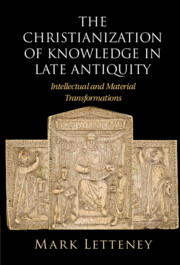This paper situates Roman actions undertaken against Christians amidst an unofficial pattern of measures employed throughout the imperial period to manage the expanding influence of freelance religious experts. Questions about the historical circumstances of martyrdom or persecution tend to proceed from the assumption that Christians were perceived and dealt with as a distinct religious community. However, the penalties alleged by writers such as Paul and Justin were more commonly issued against self-authorized individuals (magi, astrologers, prophets, diviners, philosophers, and so forth) than against undifferentiated religious groups. Thus, I propose that Roman motivations for investigating and punishing Christians, at least in the first and second centuries, are best understood in relation to the wider phenomenon of freelance expertise and the range of concerns that it engendered.
